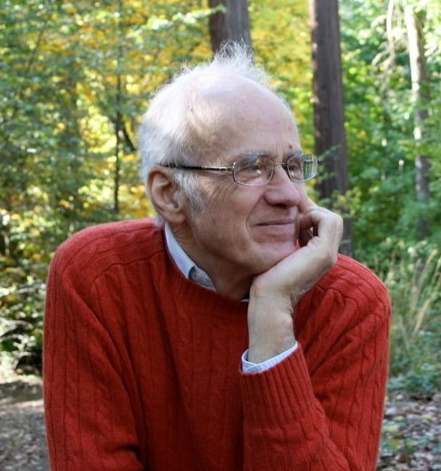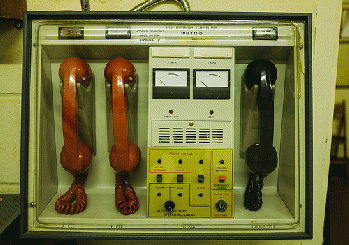Given the strictures of diplomacy, it's sometimes revolutionary just to discuss a subject. It becomes a thing. It may fade away, but having been a thing once makes it easier to become a thing again. We're familiar with human rights being on the international agenda, along with trade and calculations about missiles, but nuclear abolition?
The latter subject arose one day at Reykjavik, Iceland, in a wind-swept place called Hofdi House. The protagonists were the leaders of the Soviet Union and the U.S., along with their foreign ministers, around a small table. The year was 1986.
As a foundation official with the goal of helping to end the Cold War, I happened to be in Iceland to talk with a citizen diplomat. My visit was scheduled weeks in advance. Then Gorbachev and Reagan decided to hold a summit there. All hotel reservations were cancelled. I improvised by hiring a grad student at the university to help me and he began by inviting me to sleep in his children's'' room while the kids and his wife would be away visiting grandparents.
During the summit, I sidled into the CBS control room by acting as if I belonged there. As a loudspeaker warned that the network would be putting Reykjavik on the air, coast to coast, live, in 30 seconds, an introductory videotape was discovered to be missing. At the last instant, a messenger skidded into the room and jammed the tape into a machine. Taking another languid sip of his diet soda, the overweight director remained calm as if they went through this every day. It struck me that they did. Improvisations R Us.
Seeing that most of the media people had little to do while the secret talks were being held, I remembered it was the official publication day of a pair of books that I'd edited with Don Carlson, a California entrepreneur and philanthropist. They were called Citizen Summitry and Securing Our Planet. The subject was the end of the Cold War, which then seemed utterly impossible.
Engaging the main ballroom of a downtown hotel, I intended to entertain reporters with a demo borrowed from an organization called Beyond War. It involved dropping a few BBs into a metal ice bucket. These stood for all explosives in World War II. Then I would pour in hundreds more of the pellets and explain they stood for the nuclear arsenals that now existed.
This slightly corny plan was foiled by the unexpected emergence of Gorbachev and Reagan from Hofdi House, causing almost all the reporters to rush out. I was left with a correspondent for Swedish Radio, who took pity on me and conducted a detailed interview.
The summit broke up over Reagan's refusal to limit research on his "Star Wars" program of missile defense to the lab, but the big news was that the subject of eliminating all nuclear weapons had been raised. Both leaders had realized that the system of mutual nuclear threats might end in a final ghastly accident or miscalculation. Reagan wanted to be able to stop incoming missiles, a hope that has never been realized. Gorbachev wanted to end the threat by eliminating both sides' ability to wreck civilization, which has also not happened. They couldn't agree on the method, but they agreed that something needed to be done.
Then I flew to Moscow. Over coffee with an aide who had been at Khrushchev's elbow during the Cuban missile Crisis, I learned how close we'd come to nuclear war; and later, watching "The Fog of War," heard former Secretary of Defense McNamara casually mention that he knew of a few other times when the missiles had nearly flown. I wondered whether this was really a stable system.
Since then we have operated this unstable system for another 30 years. But a nuclear exchange could never happen, right? Years after talking with Khrushchev's aide, I wrote a piece called "A Nuclear Secret." To quote from that article: In financial analysis, "black swans" have become a popular metaphor for dangers that are very high in negative consequences, even if they seem vanishingly low in probability. For example, in terms of the behavior of big banks, the economic crisis of 2008 (and beyond); in terms of nuclear power, Chernobyl and Fukushima; in terms of storms, the effects of Katrina; in terms of deep sea drilling, the BP geyser in the Gulf of Mexico; or in terms of rocketry, the explosion of Challenger (which had happened in the year of the Reykjavik summit). These crises share a theme: the very low estimated probability of their happening. Obviously, they all did happen. But has this lesson been learned?






